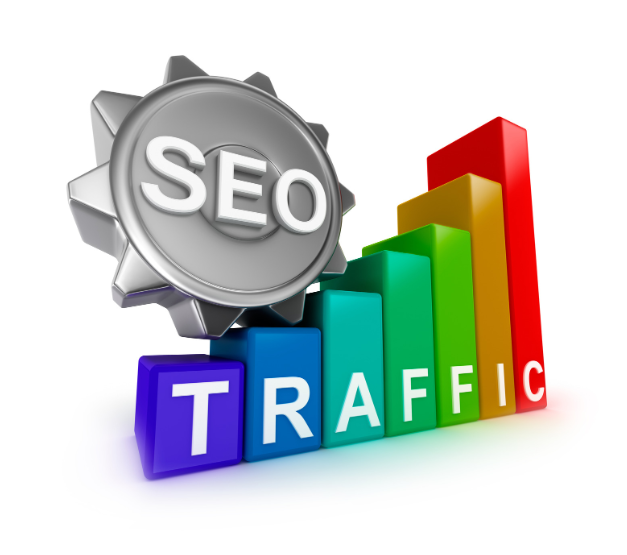Search Engine Optimization (SEO) is a vital component of digital marketing, enabling businesses to increase their visibility on search engines like Google. However, the term “SEO services” can often feel broad and unclear. In this article, we break down what SEO services entail, along with the key strategies and tactics used by professionals to enhance your website’s rankings. From keyword research to technical SEO, we’ll explain everything you need to know.
What Are SEO Services?
SEO services refer to the collection of methods and techniques that are designed to improve a website’s ranking on search engine result pages (SERPs). These services help websites become more visible to users who are searching for specific products, services, or information online. The higher your website ranks, the more traffic it can attract, which translates into increased leads, sales, and overall business growth.
The Basics of SEO: How Search Engines Work
Search engines like Google work by crawling, indexing, and ranking websites based on various factors. When a user types a query, the search engine scans through its index of billions of web pages to return the most relevant results.
SEO services ensure that your website is optimized to be easily crawled and indexed, which boosts its chances of being ranked higher. Search engines consider numerous ranking factors, such as keyword relevance, site structure, and content quality, in deciding how to rank your website.
Core SEO Strategies for Succes
To fully understand how SEO services function, it’s essential to break them down into their main components: on-page SEO, off-page SEO, and technical SEO.
On-Page SEO
On-page SEO involves optimizing the content and structure of your website to make it easier for search engines to understand and rank it. This includes improving meta tags, headlines, URL structure, and the use of keywords within the content.
Off-Page SEO
Off-page SEO focuses on improving the authority of your website through backlinks, which are links from other reputable websites that point to your site. Off-page strategies include guest blogging, social media marketing, and influencer collaborations.
Technical SEO
Technical SEO refers to optimizing the technical aspects of a website to ensure that it meets the modern requirements of search engines. This includes improving site speed, mobile-friendliness, and ensuring a secure connection (HTTPS).
Keyword Research: The Foundation of SEO
At the heart of every successful SEO strategy is keyword research. This process involves identifying the search terms and phrases that users are typing into search engines. The goal is to find keywords that are relevant to your business and have enough search volume to drive traffic.
Short-Tail vs. Long-Tail Keywords
Short-tail keywords are broad and general (e.g., “shoes”), while long-tail keywords are more specific (e.g., “women’s black running shoes”). SEO experts recommend focusing on long-tail keywords as they typically face less competition and attract more targeted traffic.
There are several tools available, such as Google Keyword Planner, SEMrush, and Ahrefs, that help identify the best keywords for your niche.
On-Page SEO: Enhancing Your Website Content
On-page SEO involves a range of tactics aimed at improving individual web pages. By optimizing these elements, you make it easier for search engines to understand what each page is about.
Optimizing Meta Titles and Descriptions
The meta title and description are critical for both search engines and users. The title tag should include the primary keyword for the page, while the description should provide a concise summary to encourage clicks.
Using Header Tags Effectively
Proper use of header tags (H1, H2, H3) helps search engines and users navigate your content. The H1 tag should clearly state the main topic of the page, while H2 and H3 tags can organize subtopics.
Image Optimization
Don’t overlook images. Use alt text to describe images in a way that includes relevant keywords, helping improve accessibility and SEO rankings.
Internal Linking
Linking to other pages on your website helps search engines understand the structure of your site and keeps users engaged longer.
Off-Page SEO: Building Your Website’s Authority
Off-page SEO is all about building your website’s credibility. The more high-quality links pointing to your site, the more likely search engines are to view your site as an authority.
Backlinking
Backlinks from authoritative websites signal trust to search engines. However, quality is more important than quantity. A few backlinks from respected sites will do more for your rankings than dozens of low-quality links.
Guest Posting
Writing articles for other websites in exchange for a backlink is a popular tactic. It’s a win-win: you get a link, and the host site gets high-quality content.
Social Media Signals
Although not a direct ranking factor, a strong presence on social media can help promote your content and generate backlinks.
Technical SEO: Improving Your Website’s Infrastructure
Technical SEO addresses behind-the-scenes elements of your website. When these factors are optimized, they improve user experience and give search engines more confidence in your site’s quality.
Site Speed
Search engines favour fast-loading websites. Use tools like Google PageSpeed Insights to identify areas for improvement. Compressing images, reducing server response time, and using browser caching are all ways to speed up your site.
Mobile Optimization
With the majority of searches now coming from mobile devices, having a mobile-optimized website is essential. A responsive design ensures that your site looks and works well on all devices.
Structured Data
Adding structured data (also known as schema markup) helps search engines understand the content of your pages better. This can lead to enhanced listings (like rich snippets) in the search results.
Local SEO: Optimizing for Local Searches
If you operate a local business, local SEO is crucial for attracting nearby customers. Local SEO services focus on optimizing your site to appear in searches made by users within your geographic area.
Google My Business
Setting up and optimizing your Google My Business profile helps you appear in local search results, especially for “near me” queries.
Local Citations
Consistent mentions of your business across local directories (Yelp, Yellow Pages, etc.) help search engines verify your location and improve your local rankings.
Online Reviews
Encourage satisfied customers to leave positive reviews, as they can significantly boost your local SEO efforts.
SEO Audits: Identifying and Fixing Issues
A comprehensive SEO audit involves evaluating your website to uncover any issues that could hinder its performance. Common SEO issues include broken links, duplicate content, and poor site speed.
SEO Tools
Use tools like Google Search Console, SEMrush, and Ahrefs to conduct a thorough SEO audit. These tools provide insights into keyword rankings, backlinks, site errors, and more.
SEO Metrics: Measuring Success and Adjusting Strategies
Measuring the success of your SEO efforts is critical for understanding what works and what doesn’t.
Organic Traffic
The primary goal of SEO is to increase organic traffic. Use tools like Google Analytics to track how many visitors are coming to your site from search engines.
Keyword Rankings
Track the performance of your target keywords to see whether your SEO strategies are helping you move up the SERPs.
Conversion Rate
Beyond traffic, it’s important to measure how well your site converts visitors into customers or leads.
White-Hat vs Black-Hat SEO: Why Ethical SEO Matters
There are two main approaches to SEO: white-hat (ethical) and black-hat (unethical). White-hat SEO focuses on long-term success by following search engine guidelines, while black-hat SEO attempts to exploit loopholes for quick gains.
Why White-Hat SEO Is Better
Though black-hat tactics like keyword stuffing or buying backlinks may result in short-term gains, they often lead to penalties from search engines. White-hat SEO ensures sustainable growth.
SEO Tactics to Avoid: Common Mistakes and Myths
SEO is constantly evolving, and businesses must avoid outdated tactics to stay competitive.
Keyword Stuffing
Overusing keywords can result in penalties, as it signals to search engines that your content is unnatural.
Duplicate Content
Having the same content on multiple pages can confuse search engines, leading to lower rankings.
Buying Low-Quality Backlinks
Instead of boosting your authority, low-quality backlinks can harm your SEO efforts.
The Future of SEO and Continuous Improvement
SEO is an ongoing process that requires constant monitoring and adaptation. The future of SEO is evolving with advancements in AI, voice search, and mobile technologies. Keeping up with these changes ensures your website stays competitive in the ever-changing digital landscape.
Unleash the true potential of your online business with Web Boost Online, the unrivaled expert in SEO services. Maximize visibility, drive traffic, and achieve digital success effortlessly.











